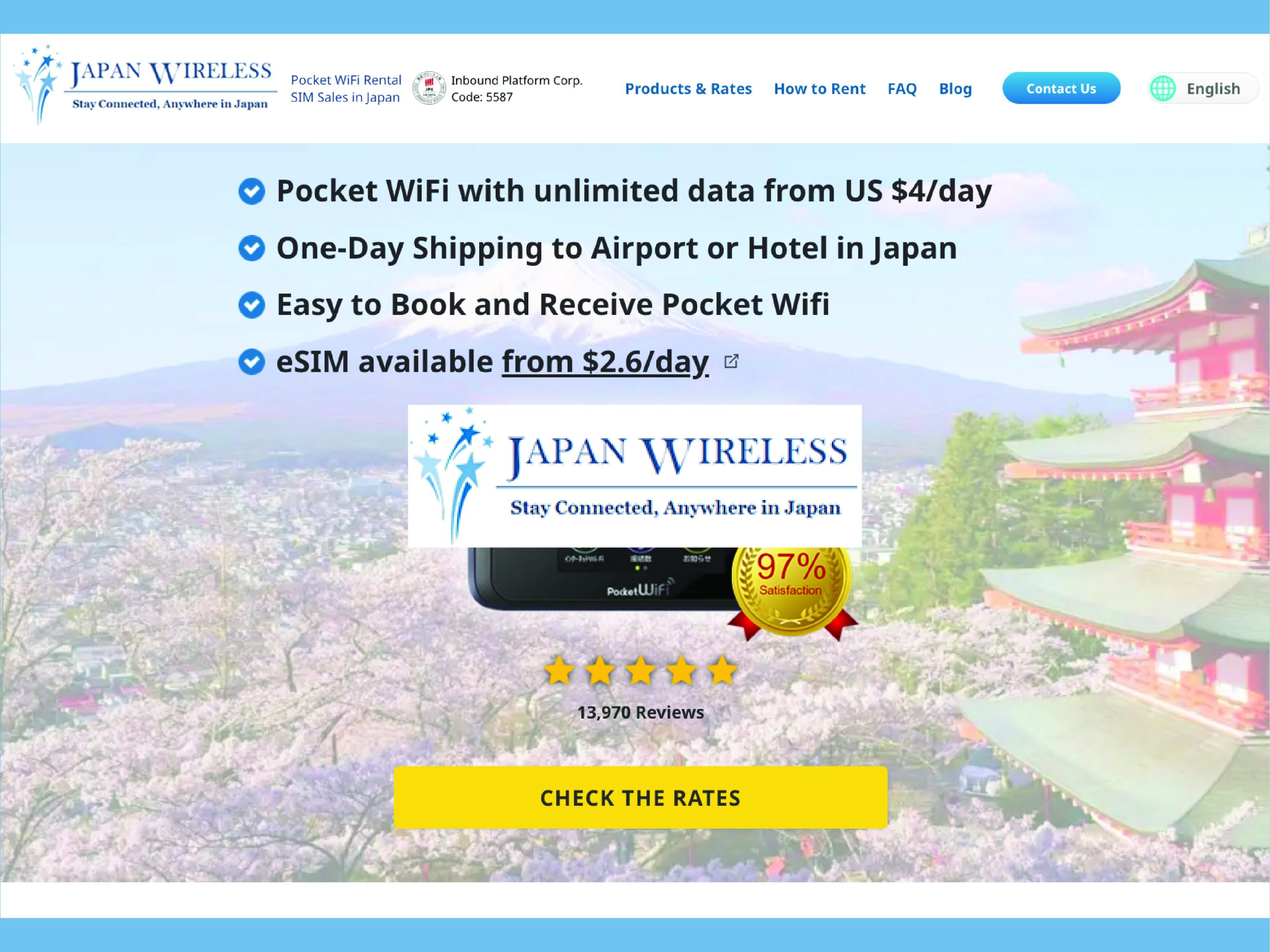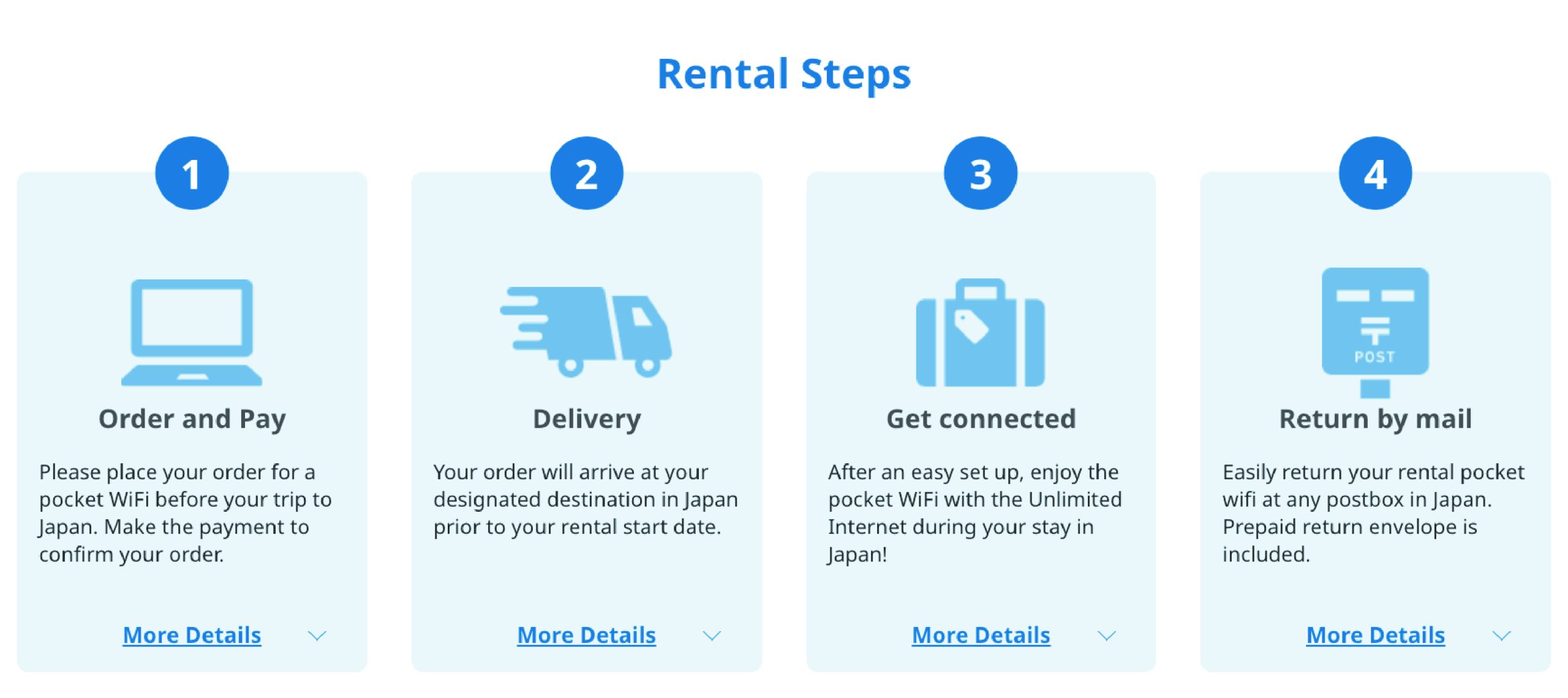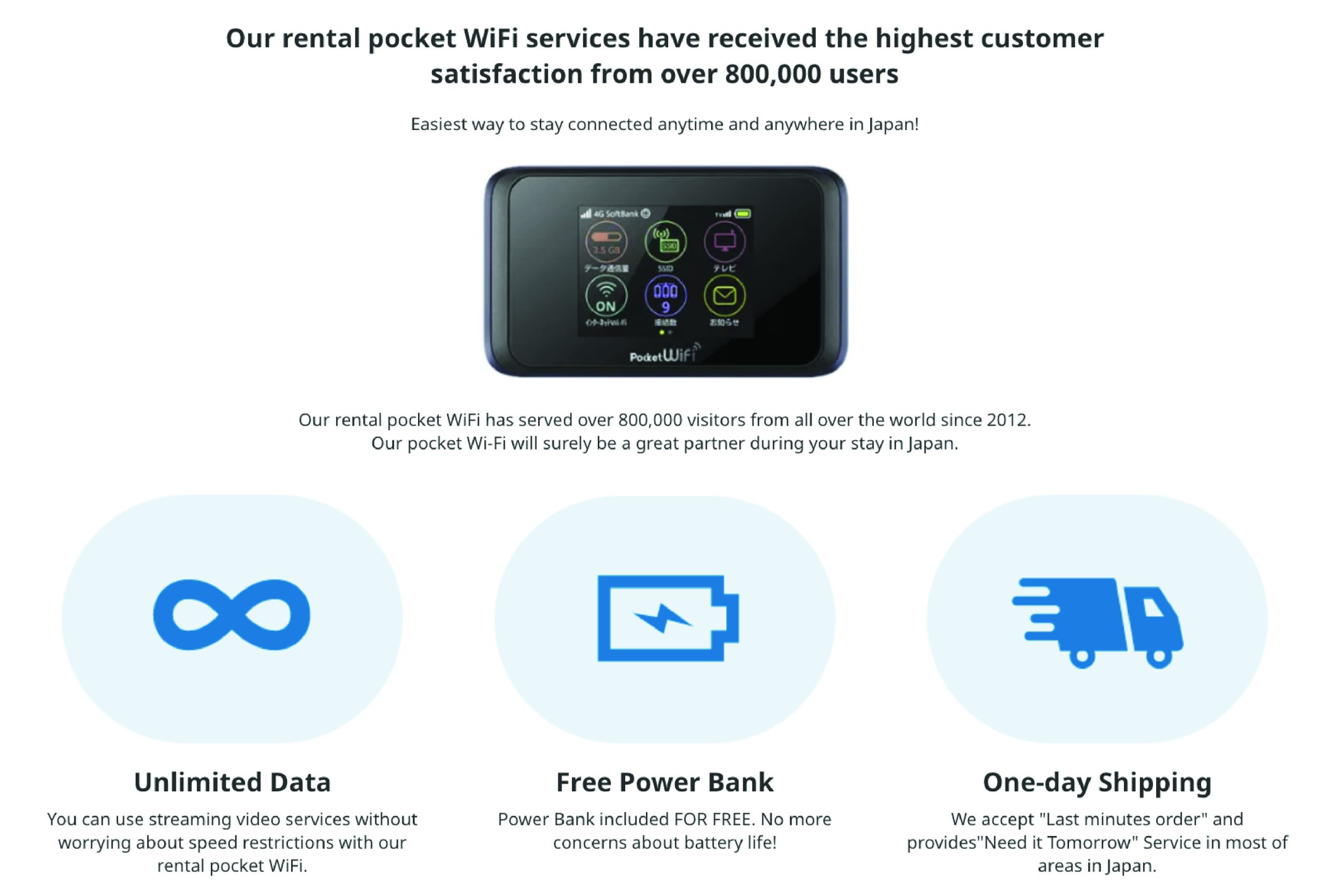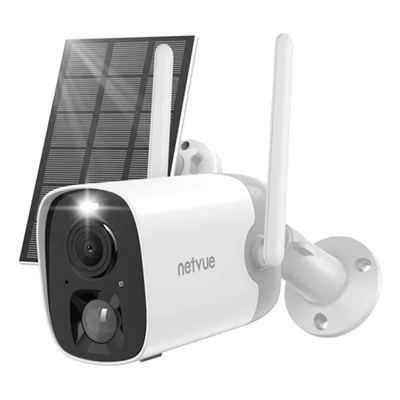If you are planning to visit or live in Japan, you might be wondering how to get internet access. One of the options is to use wireless internet, which is offered by various providers such as Japan Wireless. But is wireless internet a good choice for you? In this review, I will explain what wireless internet is, how it works, and what are the pros and cons of using it in Japan.
What is Wireless Internet?
Wireless internet is a type of internet service that uses radio waves to transmit data. Unlike wired internet, which requires a physical connection to a network, wireless internet can be accessed from anywhere within the coverage area of the provider.
There are two types of wireless internet in Japan:
- Pocket WiFi: This is a portable device that has an internal rechargeable battery and can be carried around with you. It connects to the cellular network and creates a WiFi hotspot that you can use with your smartphone, laptop, or tablet. You can rent a pocket WiFi from providers like Japan Wireless, which offer unlimited data plans and fast delivery to your hotel or airport.
- Wireless Router: This is a standalone device that needs AC power and is not portable. It also connects to the cellular network and provides WiFi access to your devices. However, it is designed to be used at home or in a fixed location. Some providers that offer wireless routers are Softbank Air and AU, which started this service about 5 years ago.
Pros of Wireless Internet
Wireless internet has some advantages that make it appealing for some users. Here are some of them:
- No physical line required: Wireless internet does not need a cable or fiber optic line to be installed in your home or office. This means that you can avoid the hassle and cost of setting up a wired internet connection, which can take a long time and require a contract. Wireless internet is especially convenient if you are staying in a temporary or rented accommodation, or if you are traveling around Japan.
- Flexible and convenient: Wireless internet gives you the freedom and flexibility to access the internet from anywhere within the coverage area of the provider. You can use it at home, at work, or on the go. You can also share it with multiple devices and users, depending on the plan and device you choose. Wireless internet is ideal if you need internet access for short-term or occasional use, or if you want to stay connected while exploring Japan.
- Affordable and easy to use: Wireless internet is relatively cheap and easy to use compared to wired internet. You can rent a pocket WiFi or a wireless router from providers like Japan Wireless, which offer competitive prices and plans. You can also order online and receive your device within one day, or pick it up at the airport or your hotel. You can also cancel anytime, with no termination fees or penalties.
Cons of Wireless Internet
Wireless internet also has some drawbacks that you should be aware of. Here are some of them:
- Limited speed and data: Wireless internet depends on the cellular network, which can vary in speed and quality depending on the location, time, and traffic. If you are in a rural or crowded area, or if you use too much data, you may experience slow or unstable internet connection. Some providers may also limit or throttle your speed if they feel you are using too much data, even though they advertise no data limit. Wireless internet is not suitable if you need fast and reliable internet access for heavy or frequent use, such as streaming, gaming, or downloading large files.
- Reception and battery issues: Wireless internet also relies on the signal strength and battery life of your device. If you are in a place with poor reception, or if your device runs out of battery, you may lose your internet connection. You may also need to charge your device frequently, especially if you use a pocket WiFi, which can drain your battery quickly. Wireless internet is not reliable if you need constant and uninterrupted internet access, or if you don’t have access to a power source.
- Cancellation terms and fees: Wireless internet may also have some hidden or unfavorable cancellation terms and fees. Some providers may require you to sign a long-term contract, which can last for two or three years, and charge you a cancellation fee if you cancel outside of the cancellation month. Some providers may also have tricky rebates or discounts that require you to fill out some form or meet some conditions, which can be confusing or misleading. Wireless internet is not advisable if you want to avoid long-term commitments or extra charges.
Conclusion
Wireless internet is a type of internet service that uses radio waves to transmit data. It can be accessed from anywhere within the coverage area of the provider, and it does not need a physical line to be installed. Wireless internet has some pros, such as no physical line required, flexible and convenient, and affordable and easy to use. It also has some cons, such as limited speed and data, reception and battery issues, and cancellation terms and fees.
Wireless internet can be a good option for some users, depending on their needs and preferences. However, if you are looking for a better alternative, you may want to consider using a wired internet connection, which can offer faster and more stable internet access. You can use a website like kakaku.com to compare and find the best deals for wired internet in your area. You can also contact otegal.jp, which offers a first month free, no installation fee, no long-term contract, and easy payment options.















Reviews
There are no reviews yet.